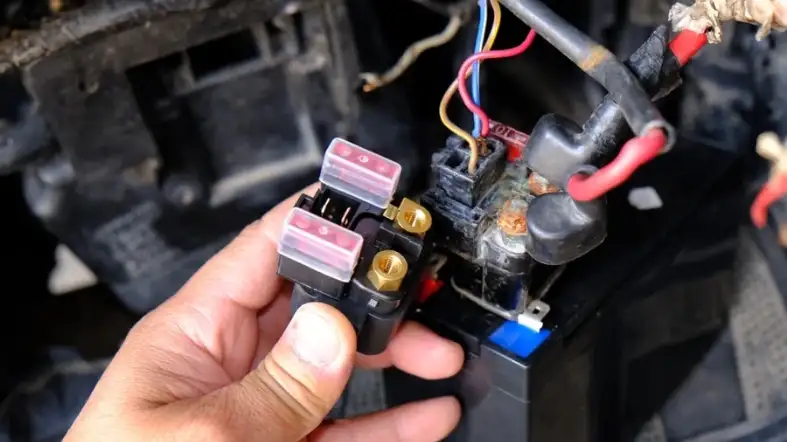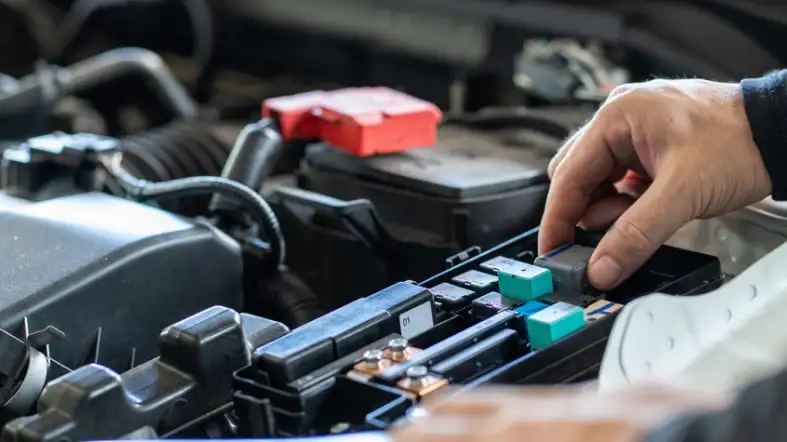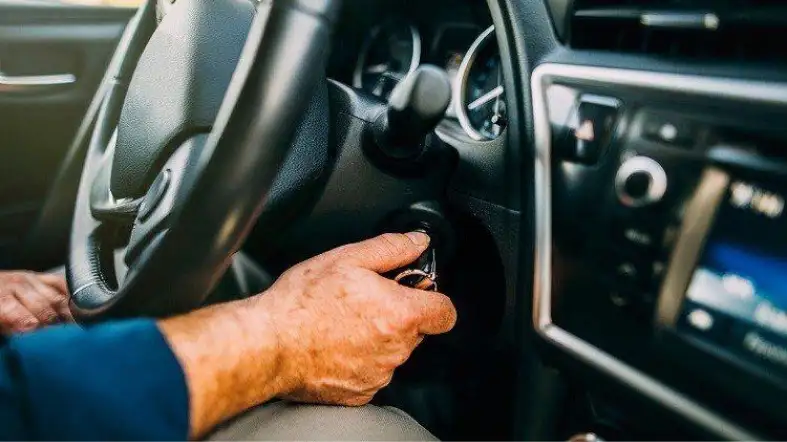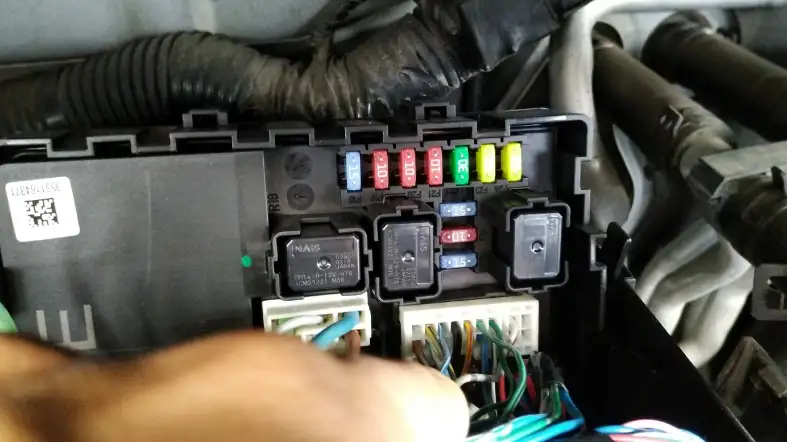Have you ever had trouble starting your car? You turn the key, but all you hear is a clicking sound, or worse, nothing at all.
It’s frustrating, especially if you’re in a hurry or it’s a particularly cold morning.
The culprit could be a bad starter relay, a crucial component in your car’s electrical system.
A starter relay is responsible for sending an electrical current to the starter motor, which in turn cranks the engine.
But how do you know if your starter relay is the problem? In this blog, we’ll explore the signs of a bad starter relay, so you can diagnose the issue and get back on the road in no time.
What are the signs of a bad starter relay?
The starter relay is an important component of your vehicle’s starting system. It’s responsible for sending an electrical signal to the starter motor to start the engine.

If the starter relay goes bad, your vehicle may not start or may exhibit other problems. Here are some signs that your starter relay may be bad:
1. The engine does not crank:
One of the most common signs of a bad starter relay is when you turn the key and the engine doesn’t crank.
This could mean that the starter relay is not sending the necessary electrical signal to the starter motor.
2. Clicking sound when turning the key:
If you hear a clicking sound when you turn the key, but the engine doesn’t crank, this could also be a sign of a bad starter relay.
The clicking sound is usually the sound of the starter relay trying to engage, but failing to do so.
3. Electrical issues:
A bad starter relay may cause electrical issues in your vehicle, such as flickering headlights, dim interior lights, or a malfunctioning radio.
4. Intermittent starting problems:
If your vehicle sometimes starts and sometimes doesn’t, this could be a sign of a bad starter relay.
The relay may be failing intermittently, causing the engine to sometimes start and sometimes not.
5. Starter motor runs continuously:
If your starter motor continues to run even after the engine has started, this could be a sign of a bad starter relay.
The relay may be stuck in the “on” position, causing the starter motor to continue running.
What are the causes of a bad starter relay?

A bad starter relay can cause all sorts of problems when it comes to starting your vehicle.
If you’re having trouble starting your car, it might be due to a bad starter relay. Here are some of the most common causes of a bad starter relay:
1. Electrical Issues:
A bad starter relay can be caused by electrical issues, such as a faulty battery, loose or corroded wiring, or a blown fuse.
If the electrical system in your vehicle is not functioning properly, it can cause the starter relay to fail.
2. Overheating:
Another common cause of a bad starter relay is overheating. If the relay gets too hot, it can become damaged and fail to operate correctly.
This can be caused by a variety of factors, such as a faulty cooling system, a clogged radiator, or a damaged fan.
3. Wear and Tear:
Starter relays, like any other mechanical part, can wear out over time.
If you have an older vehicle or have put a lot of miles on your car, it’s possible that the starter relay has simply worn out and needs to be replaced.
4. Poor Maintenance:
If you don’t take care of your vehicle, it’s more likely to develop problems like a bad starter relay.
Regular maintenance, such as oil changes and tune-ups, can help prevent these issues from occurring.
5. Manufacturing Defects:
Sometimes, a bad starter relay can be caused by a manufacturing defect. If the relay was not made correctly, it may fail prematurely, even if the vehicle is relatively new.
How to Fix a Bad Starter Relay?

If your vehicle is not starting, and you suspect that the starter relay is faulty, here are some steps you can take to fix it:
1. Check the battery:
Before you conclude that the starter relay is bad, make sure your battery is fully charged and in good condition.
A weak or dead battery can also cause starting problems. Use a multimeter to test the voltage of the battery.
2. Locate the starter relay:
The starter relay is usually located in the engine compartment or under the dashboard. Check your vehicle’s manual for the exact location of the relay.
3. Test the relay:
To test the starter relay, you can use a multimeter to check if it is receiving power and sending power to the starter motor.
If the relay is not receiving power, you may have a problem with the wiring or the ignition switch.
4. Replace the relay:
If the starter relay is faulty, it needs to be replaced. You can purchase a new relay from an auto parts store.
Make sure to get the right relay for your vehicle.
5. Install the new relay:
Once you have the new relay, install it by connecting the wires to the correct terminals. Make sure that all connections are secure.
6. Test the system:
After installing the new starter relay, test the ignition system to make sure it is working properly.
Turn the key to the “on” position and listen for the sound of the starter motor engaging. If the engine cranks, the starter relay has been successfully replaced.
When to replace a starter relay?

Over time, a starter relay may begin to malfunction, causing problems with the car’s starting process.
Here are some points to consider when deciding whether it’s time to replace a starter relay:
1. Difficulty starting the car:
If you notice that your car is having trouble starting or requires multiple attempts to start the engine, it may be a sign that the starter relay is starting to fail.
This is because the relay is responsible for providing power to the starter motor, which turns the engine over.
2. Clicking noise:
Another sign of a failing starter relay is a clicking noise coming from the engine compartment when you turn the key.
This noise is the sound of the relay attempting to engage the starter motor but failing to do so due to a lack of power.
3. Electrical issues:
If you experience other electrical problems with your car, such as the headlights or radio not working properly, it could be a sign of a faulty starter relay.
This is because the relay is part of the car’s electrical system and a malfunctioning relay can cause issues with other components.
4. Visual inspection:
You can visually inspect the starter relay to see if there are any signs of damage or wear.
If you notice that the relay has a cracked or melted casing, corroded contacts, or other physical damage, it is likely time to replace it.
5. Age of the relay:
Finally, the age of the starter relay can be a factor in determining whether it needs to be replaced.
Most relays have a lifespan of several years, but if your car is older or has high mileage, it may be time to replace the relay as part of regular maintenance.
FAQs
1. What Is A Starter Relay?
A starter relay is an electrical component that helps to start a vehicle’s engine.
It is responsible for transmitting electrical signals from the battery to the starter motor.
2. Can A Bad Starter Relay Cause Other Problems?
Yes, a bad starter relay can cause other issues with your vehicle. For example, it can cause the battery to drain, as the relay may still be drawing power even when the engine is off.
It can also cause issues with the ignition system, as the electrical signal may not be reaching the necessary components.
3. How Do I Diagnose A Bad Starter Relay?
One way to diagnose a bad starter relay is to test it with a multimeter.
You can also check the wiring connections and make sure they’re tight and secure.
If you’re not comfortable doing this yourself, it’s best to take your vehicle to a trusted mechanic.
4. Can I Replace A Starter Relay Myself?
Yes, it’s possible to replace a starter relay yourself, as long as you have the necessary tools and knowledge.
However, if you’re not comfortable with DIY repairs, it’s best to take your vehicle to a professional mechanic to avoid causing any further damage.
Conclusion
A bad starter relay can cause all sorts of problems with your vehicle. Some of the most common signs of a bad starter relay include a clicking sound when you turn the key, the engine not starting, and a complete lack of power to the vehicle.
It’s important to keep an eye out for these signs and to have your vehicle checked out by a mechanic if you suspect that your starter relay is not functioning properly.
By staying on top of your vehicle’s maintenance needs, you can avoid costly repairs down the line and keep your car running smoothly.
